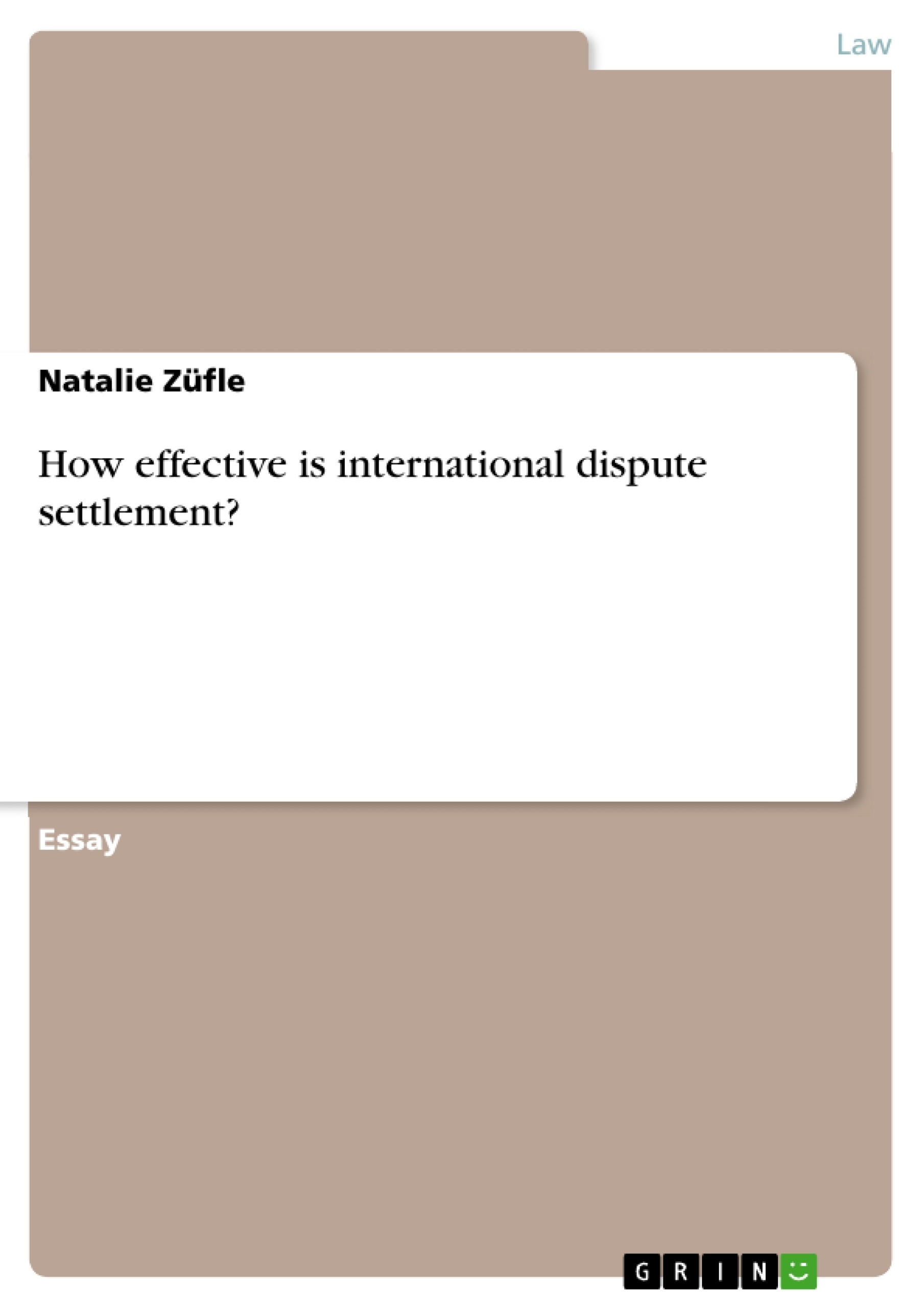The weakness of the dispute settlement mechanisms in international law cannot be denied. However, the number of cases to be regulated is rising and judgments are followed quite often, especially in the globalized and interdependent world.
Inhaltsverzeichnis (Table of Contents)
- Introduction
- Morgenthau’s Critique
- The Theoretical Lens: Liberalism vs. Realism
- Challenges to Dispute Settlement
- The Role of Political Influence
- Effectiveness of Dispute Settlement Mechanisms
- Conclusion
Zielsetzung und Themenschwerpunkte (Objectives and Key Themes)
This essay aims to evaluate the effectiveness of international law and its dispute settlement mechanisms, particularly in light of Hans Morgenthau’s realist critique. The author analyzes the effectiveness of international law and its dispute settlement mechanisms, considering the different theoretical perspectives of liberalism and realism. The essay explores the following key themes:- The effectiveness of international law and its dispute settlement mechanisms
- The influence of political power on the effectiveness of international law
- The role of theoretical perspectives (liberalism and realism) in understanding international law
- The impact of globalization and interdependence on the effectiveness of international law
- The importance of reputation and prestige in international relations
Zusammenfassung der Kapitel (Chapter Summaries)
- The essay begins by introducing the topic and outlining the argument that the effectiveness of international law and its dispute settlement mechanisms depends on the theoretical lens through which one views the world.
- The author then explores Hans Morgenthau’s realist critique of international law, highlighting his view that power, rather than law, dictates compliance and enforcement.
- The author delves into the theoretical perspectives of liberalism and realism in international relations, contrasting the values and assumptions of each approach.
- The essay examines various challenges to dispute settlement, including the reliance on state consent, the weakness of diplomatic means, and the reluctance of states to submit issues concerning their vital interests to international courts.
- The author discusses the role of political influence, drawing on Cassese’s argument that the respect for international law is often dependent on the power of states.
- The essay explores the effectiveness of dispute settlement mechanisms, particularly in the economic realm, noting the success of organizations like the WTO and the increasing number of cases brought to the ICJ.
Schlüsselwörter (Keywords)
This essay explores key concepts in international law including dispute settlement mechanisms, realism, liberalism, power politics, state consent, political influence, international organizations, and the role of reputation and prestige in global affairs. The author examines the effectiveness of international law and its mechanisms, considering the complexities of state interests, international cooperation, and the evolving nature of global governance.Frequently Asked Questions
How effective is international dispute settlement?
The effectiveness is debated; while mechanisms exist, their success often depends on state consent and the theoretical lens (liberalism vs. realism) used to evaluate them.
What is Hans Morgenthau’s critique of international law?
Morgenthau’s realist critique argues that power politics, rather than law, dictates compliance and that international law is often weak when vital state interests are at stake.
What is the role of the WTO in dispute settlement?
The WTO is cited as an example of a relatively effective dispute settlement mechanism, particularly in the realm of globalized economic interdependence.
Why is "State Consent" a challenge for international courts?
International courts generally require the consent of states to exercise jurisdiction, which can limit their ability to settle disputes if one party refuses to participate.
Does reputation influence compliance with international law?
Yes, the desire for prestige and a good reputation in the international community often motivates states to follow judgments, even when enforcement is weak.
- Citation du texte
- Natalie Züfle (Auteur), 2008, How effective is international dispute settlement?, Munich, GRIN Verlag, https://www.grin.com/document/180100



